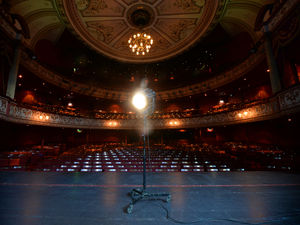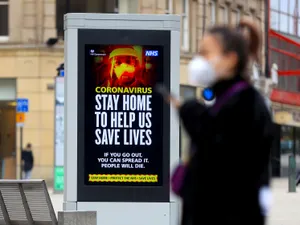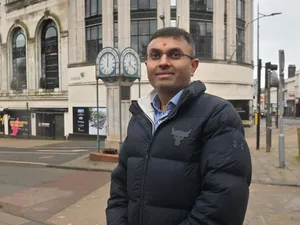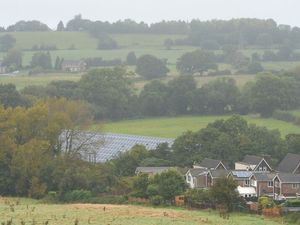Will our Mayoral vote herald Election result? asks Nigel Hastilow
Brenda from Bristol has a point. The early star of the campaign reacted with horror when she was told Theresa May was calling a General Election.
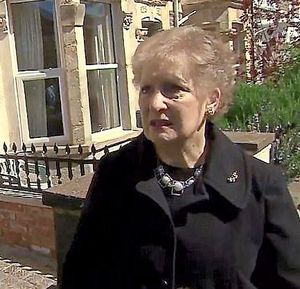
In a double-cream West Country accent she told the BBC: ‘You’re joking. Not another one? Oh for God’s sake, I can’t stand this. Honestly, there’s too much politics going on at the moment. Why does she need to do it?’
This instant reaction seems to sum up the way many people feel about the decision to hold a snap General Election only two years after the last one and less than a year after the European Union referendum.
For journalists and commentators it is, of course, thrillingly exciting to have another election to get our teeth into. But the knowledge that the airwaves will full of MPs pontificating about Brexit, the NHS, schools and Jeremy Corbyn for the next seven weeks is a daunting prospect.
Most people, like Brenda from Bristol, just want to get on with their lives and leave politics to the politicians.
That is, after all, the point of a Parliamentary democracy – we elect our representatives every five years and it’s their job to make decisions on our behalf. It’s what we pay them for; they pass the laws and use their collective intelligence to grapple with the great questions of the day so that we don’t have to.
Yet it was probably not the average woman in the street who was most horrified by the news of a snap election. Members of the Labour Party are surely more daunted by the prospect of the coming campaign than most voters will be.
Even one of its own MPs doesn’t want the party to win. John Woodcock, who has a tiny 795-vote majority in Barrow and Furness says he ‘will not countenance ever voting to make Jeremy Corbyn Britain’s Prime Minister’.
Meanwhile the party is short of money, has no election slogan, no manifesto and no list of the target seats it hopes to defend or even to win. It has been caught on the hop even though rumours of an early election have been circulating for weeks.
A prudent political party would prepare for battle even if it doubted the likelihood of having to swing into action. All parties will now be desperately trying to ensure they have a half-way credible candidate ready to fight each seat – the panic is not confined to Labour.
But the Liberal Democrats, unlike Mr Corbyn’s party, are looking forward to polling day in the hope they can regain some of the ground they lost two years ago. For Labour, the election of the new Mayor of the West Midlands takes on a whole new significance.
It was already touch-and-go whether Sîon Simon, the Labour candidate, would hold off the challenge from the Tories’ Andy Street despite electoral arithmetic suggesting he should win easily. Without a General Election in the offing, Labour’s performance at the Mayoral election would have given us a reliable guide to the state of the parties in a region which makes and breaks Governments.
Now, though, it will be a crucial piece of evidence in determining whether Mr Corbyn’s Labour Party can claw its way back into contention by June 8 or whether the opinion polls predicting disaster will prove to be accurate.
The Labour campaign in the West Midlands has been deliberately low-key, the theory being that if Mr Simon can get out the vote of committed long-term supporters and trade unionists, he is home and dry.
That calculation may have applied earlier this year but now, with a national election coming hard on the heels of the Mayoral poll, it is likely to galvanise his opponents and persuade more people to go out and vote.
Already most Labour candidates are trying to run local campaigns without reference to their party leader. No doubt Mr Simon will be doing what he can to distance himself from the baleful influence of Mr Corbyn. But that’s harder to do when your leader will inevitably be raising his profile over the coming weeks because he is, in theory at any rate, Britain’s alternative Prime Minister.
Mr Corbyn also brings with him an army of radical left-wing supporters most other voters find repulsively off-putting.
If Mr Simon loses to the Conservatives and Mr Street became our first elected Mayor, it would provide the worst possible backdrop for Labour’s General Election campaign in this key battleground.
There are other Mayoral contests around the country but none will be of as much significance in predicting the General Election result.
In normal times, under a half-way decent leader, with the Tories in Government, Labour would win the Mayoral race in the West Midlands.
But these are not normal times and if Labour cannot win here then the party will not simply lose the General Election, it really will be heading for disaster.
And even Brenda from Bristol might find that vaguely interesting.

